When Mariah Fidalgo and her husband, Tom Rommé, came to visit her parents in her hometown of Orleans in the spring of 2020, they packed for a two-week stay. They were living in Harlem, and the television show she worked on as a costume designer had just gone on a forced break.
That two-week trip extended to months, and Fidalgo soon ran out of clothing. Lucky for her, she had also packed a sewing machine. The fabric she had easy access to was vintage, owing to both parents being antique dealers and collectors. She made caftans and thigh-length dusters from aged linen. Tablecloths became crop tops and repurposed quilts became colorful jackets and structured shirts.
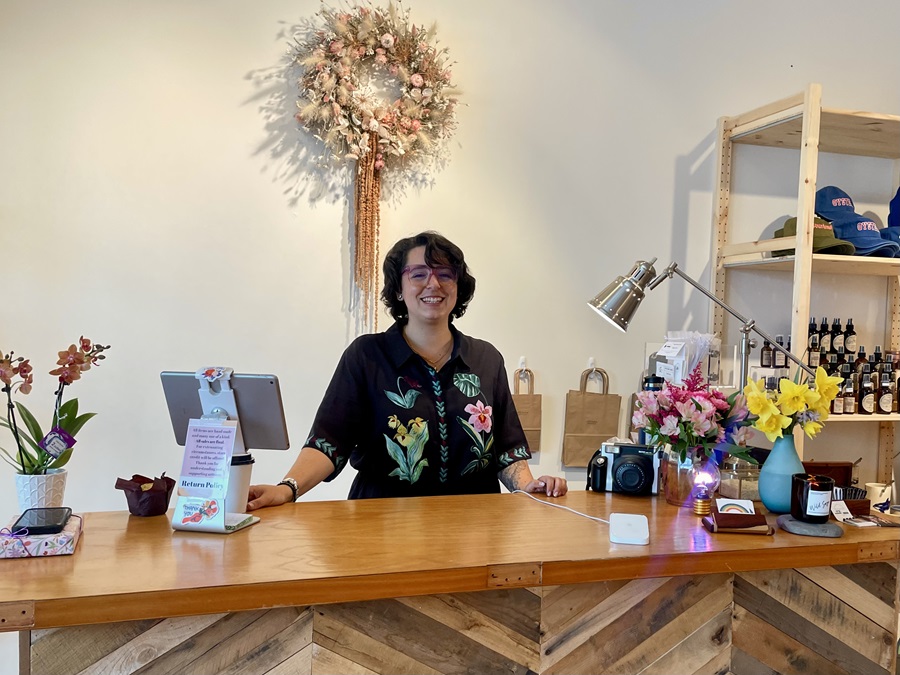
Out of work and with time to spare, she started to play with natural pigments and ice dyeing, a technique that involves scattering dry dyes onto ice cubes placed on fabric. As the ice melts, the dye seeps into the fabric, creating organic patterns. Depending on the hues and amounts of dye used, the effect can be celestial or conjure a dreamy watercolor sunset.
That summer, she sold her new line of hand-dyed and upcycled “slow fashion” under the label Dye Pot Fibers at a few outdoor pop-ups. By winter, it was official: Fidalgo and Rommé were not returning to New York.
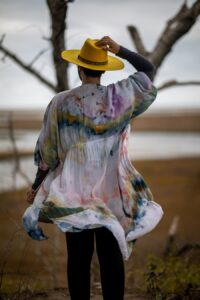
Soon after that, Fidalgo opened a first iteration of the Wild Water Collective, on Main Street in Orleans, with the idea of building a circle of creative people and a sociable space for showing all kinds of work. Five years in, the idea outgrew the original postage-stamp storefront. The collective is re-opening in a much larger space at Lowell Square on Route 6A on April 12.
Rommé, a Brewster native, built the chevron-patterned register counter out of reclaimed wood. Many tables and fixtures were pulled from Fidalgo’s parents’ collection. And her own creations, which include technicolor ice-dyed jumpsuits, oyster appliques on upcycled denim jackets, and her graphic designs printed on stickers and cards, are in the mix.
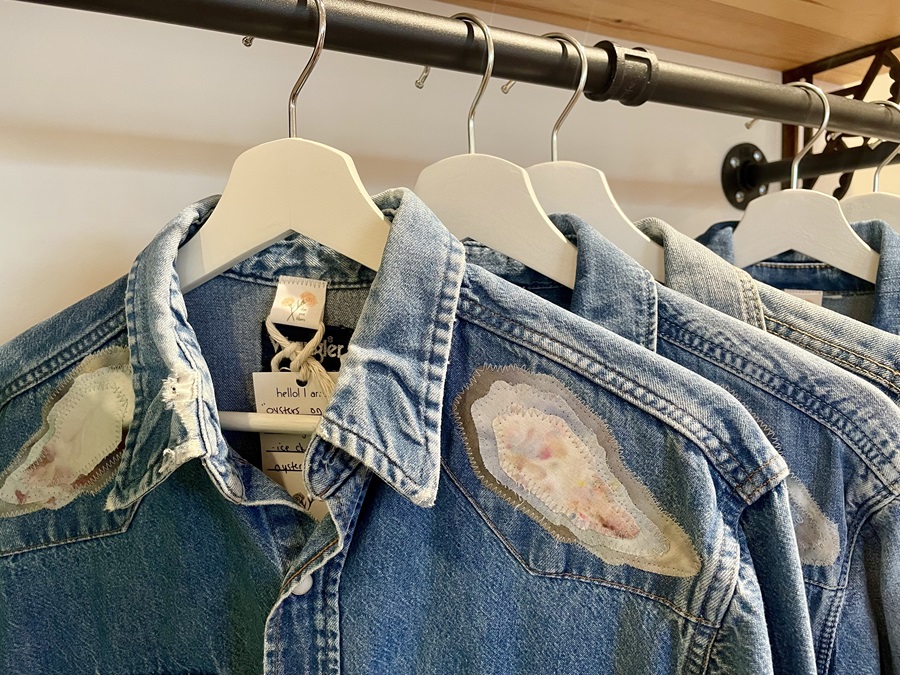
Not everything Fidalgo selects for the shop is made locally, but everything is made by an independent artist or maker. Most of what’s on display reflects the multi-talented mix of Cape Cod artisans she’s gotten to know over the past few years: Siggy Ceramics, ALR Designs watercolors and prints, Crystal Borealis Jewelry, Ryann and Renee Skincare, Enchantments by Kathy Welsh, Holy Stone Ceramics, Charlotte Goldberg Jewelry, Middle Dune letterpress cards and books, and Wrackline Leatherwear.
Next to luxurious salves from Healing Hands Apothecary and wreaths made from the organic flowers at Blue Lobster Flower Farm are instances of Fidalgo’s playful sense of humor: Boob mugs from North Falmouth’s Weare Pottery and Heather Brunelle’s “clamdles” (soy wax-filled quahog shell candles) are prime examples.
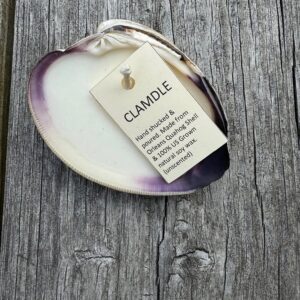
Another thing about the new space, Fidalgo says, is how it promises to change her monthly “Low Stakes Craft Nights.” Before, she could have about a dozen people. Now she is limited only by the number of chairs she has (current count: 25). These are donation-based themed gatherings (think Halloween or spring), but she also offers more intensive workshops at affordable rates with instructors who are local artists and makers.
Isabel Stearns is returning to teach a felting workshop, and a bouquet making class with Olivia Adamaitis from Bass River Blooms is on the calendar. Fidalgo will join the lineup, too: she teaches visible mending and natural flower dyeing.
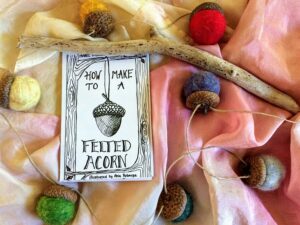
Having a space where people feel comfortable spending time is what Fidalgo is after. So is being “a comfortable space for queer folks,” she says. “That’s something that’s developed naturally, and it’s been the highlight for me.”
Fidalgo may be a curator at heart. But she’s one with an ulterior motive. She wants to be the host of a party where people connect with artisans they might never know about otherwise.
